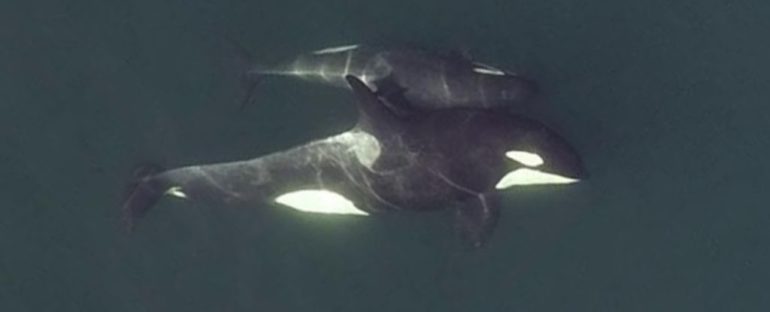Drone footage has captured the social lives of southern resident killer whales like never before, and their friendships look surprisingly similar to our own.
Tracking a single pod of 22 killer whales for 10 days, researchers observed a complex web of relationships, including close friendships.
Resident killer whales live their whole lives in the same pod they were born in, but that doesn’t mean they have to like everyone around them equally. Over the course of their lives, their relationships with other whales in their group appear to ebb and flow.
In drone footage, researchers noticed most whales showed a preference for the company of specific individuals, choosing to surface with them and touch them more often than others.
These are signs of cooperation and social affiliation, which implies a close bond. Often, these close relationships formed between whales of the same sex and age.
“Our findings show that, even within these tight-knit groups, whales prefer to interact with specific individuals,” says Michael Weiss from the University of Exeter and the study’s lead author.
“It’s like when your mom takes you to a party as a kid – you didn’t choose the party, but you can still choose who to hang out with once you’re there.”
Judging by the physical contact between certain whales, the young females are the life of the party. They seemed to play a central role in the group’s social network.
The authors aren’t sure why that is, but they suggest adult male killer whales spend more time foraging and less time socializing in order to maintain their larger bodies.
Conversely, young whales are nursed by their mothers and fed prey by others, which frees them up to play with their friends, especially other young whales that aren’t busy hunting.
“We were amazed to see how much contact there is between whales – how tactile they are,” says behavioral ecologist Darren Croft from the University of Exeter.
Croft is fascinated by the parallels he noticed between whales and other animals like ourselves.
“In many species, including humans, physical contact tends to be a soothing, stress-relieving activity that reinforces social connection,” he explains.
“We also examined occasions when whales surfaced together – as acting in unison is a sign of social ties in many species.”
One of the most intriguing parallels Croft and his colleagues have noticed has to do with age. The older the killer whale, the less social they appeared to be in the footage.
This aligns with the behavior of other social mammals, who also tend to become less social as they age, including humans.
“This apparent similarity between primate and killer whale social life history is particularly interesting given the convergent reproductive life histories in killer whales and humans,” the authors write.
“Killer whales may also actively form important relationships and social skills at a young age, as in other matrilineal societies.”
More research is needed among other killer whale pods to confirm these results, especially since no one has noticed age and sex influencing killer whale relationships before.
Other species of whale show social structures nearly as complex as our own. Some dolphins even form friendships based on shared interests, so the lack of evidence among killer whales has been confusing.
The new research suggests we simply weren’t looking deep enough. Most of our studies to date have been limited to sightings on the ocean’s surface, whereas drone footage can allow us to catch glimpses of whale behavior below the waves, too.
Having an eye in the sky could ultimately change how we see these whales.
The study was published in the Proceedings of the Royal Society B.



